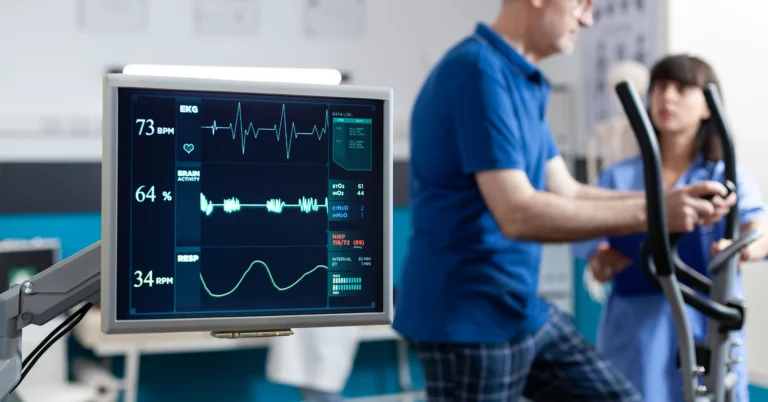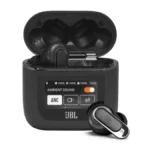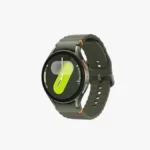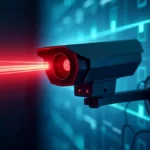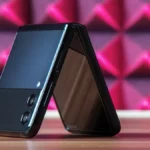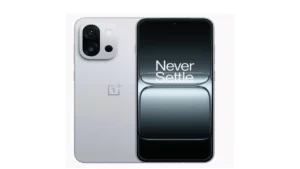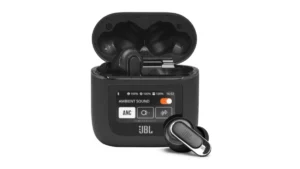Remote heart monitoring has become an effective part of treatment plans for more than two decades, and it has also continued to grow in its importance during the COVID-19 pandemic. The Food and Drug Administration has expanded the use of certain non-invasive monitoring devices to facilitate patient management during the COVID-19 pandemic. This includes heart monitoring devices as well. It has become increasingly important to do a heart monitor every once in a while n order to have healthy heart health.
A heart monitor is a practice that must be effectively followed by people who have an arrhythmia or irregular heartbeat and are under the doctor’s care. They can help manage their heart condition from home with the help of remote monitoring. Hence, having a heart monitor at home is an effective way to track heart health.
Device to Monitor Heart rate:
As mentioned earlier, people with an arrhythmia or irregular heartbeat can have a home heart monitor, which would help them monitor their heart health. Several types of remote heart monitoring devices include wearable heart monitors that are available as smartwatches and smartphones.
It is always better to have a check-up at the hospital as the hospital-grade heart monitor would help double-check any abnormal heart readings. The doctor who will receive the transmitted information would look for changes that would have occurred either with the heart’s rhythm or the device used.
However, it is very important to have a heart monitor at home to stay safer when it comes to your heart. You all must want to know more about the arrhythmia condition since you have been reading about it for this long. So, without any further delay, let’s learn more about arrhythmia.
What is Arrhythmia?
An arrhythmia is a condition where you have an abnormal heartbeat. It can be harmless as well as life-threatening. It can also be brief or last longer, causing the heart rate to be too slow or fast, resulting in an irregular heartbeat.
There are many types of arrhythmia. The most common type of arrhythmia is atrial fibrillation (AFib), where the upper chambers of the heart contract irregularly. Afib can lead to blood clots, stroke, heart failure, and other heart-related complications. As per a report by the Centers for Disease Control and Prevention (CDC), as many as 6.1 million Americans have Afib.
What are the Symptoms Related to Arrhythmia?
By now, you have got an idea about arrhythmia, and now you all need to know its symptoms. As they say, ‘Prevention is better than Cure.’ If you experience or anybody who has these symptoms, you can take medical action and be there to help. However, if you have an arrhythmia, it is important to have an active heart monitor to track the condition. The symptoms that indicate arrhythmia are as follows:
- Fatigue
- Shortness of breath
- Chest pain
- Dizziness
- Fainting
- Rapid heartbeat
You need to note that in extreme cases, Afib can lead to a heart attack.
Who Can be at High Risk for Afib?
Since you all have become acquainted with the symptoms of arrhythmia, it is time for you all to know about the people who can be at higher risk for Afib. The people who can be at a higher risk for Afib are:
- Older adults
- People with a family history of AFib
- People with other chronic conditions, such as thyroid problems, diabetes, and asthma
- People with high blood pressure
- People with underlying heart disease
What is the Function of a Heart Monitor?
Since we have discussed the importance of continuous heart monitoring, it is time to know exactly what cardiac monitoring devices do. Are you all ready? Let’s dive in!
Your doctor may order to do an ECG or EKG so that it becomes easier to diagnose or determine an abnormal heart rhythm. Sensors or electrodes are attached to the chest and sometimes a limb to detect the electrical activity of a heartbeat. Well, as you may know, the ECG procedure is usually done in a doctor’s office, hospital, or clinic, and you can also do it at home in the form of home cardiac monitoring.
If you have sporadic symptoms, then a standard ECG may not be able to capture the necessary information. So, your doctor may recommend you use a remote heart monitor which is also known as an ambulatory electrocardiographic monitor.
This is the function of a heart monitor, and it is always better to have a heart monitor at home so that you can have an active heart monitoring practice and keep track of your arrhythmia symptoms.
But, having a heart monitor at home is not enough because you need to have the best heart monitor to help track your heart health. I know you all must be eager to know about the best heart monitor you can get to monitor your heart health. Well, without any further delay, let’s learn about the best heart monitor you can have. Are you all ready?
Best Heart Monitor that You Must Know About:
As discussed earlier, there are different heart monitor types that you can access and are available in the market. The types of heart monitors are:
Cardiac Event Monitors:
This type of heart monitor is similar to a Holter monitor, but it is used for long-term monitoring of symptoms that occur infrequently. Heart patients have to wear these pager-sized devices for longer periods which can be considered wearable cardiac event monitors. They have to wear this heart monitor typically for 30 days which would be used to record the heart activity as the symptom occurs, in some devices, the ECG can be sent by telephone to the patient’s health care team.
There are different types of cardiac event monitors, including wearables, as mentioned earlier, and implanted devices.
Holter Monitor:
This type of heart monitor is a wearable device that records continuous ECG, which usually lasts 24 to 48 hours. Newer Holter monitors allow continuous monitoring for weeks.
Patch Recorder:
It is a type of heart monitor that is a heart monitor patch and is an adhesive that is applied to the chest region.
Loop Memory Monitor:
A loop memory monitor is a heart monitor that stores your ECG for the period, including before and after your symptoms.
Implanted Loop Recorder:
This type of heart monitor is a pager-sized heart activity recorder that will be placed under the patient’s chest for up to three years.
Symptom Event Monitor:
A system event monitor is a type of heart monitor that is hand-held or wearable, activated, and placed under the chest during symptoms.
Well, folks, these are some of the best heart monitor devices you can consider getting, but it is always advisable to visit the doctor for a better heart monitoring report. However, continuous heart monitoring is a very important practice that must be followed, especially with people who have an arrhythmia or the symptoms of arrhythmia or are heart patients.
However, as we have learned about the types of heart monitor devices, it is time to know about some new devices that can help you keep your heart healthy with their use. They will help in the active monitoring of the heart without hassle.
So, without any further delay, let’s learn about the new devices you can consider for a heart monitor’s function to have a healthy heart. Are you Ready? Keep reading!
New Generation Devices:
As we advance daily, the healthcare sector also progresses with technological advancements. Today, health and technology go side by side. People can now use smartphones and smartwatches to keep a track of their heart health. A Heart monitor must be there at home, but these devices are coming in handy for instant and hassle-free heart health tracking!
In 2018, Apple introduced the Apple Watch Series 4, which comes with a heart-monitoring function and is the first watch of its kind. It can easily detect irregular heart rhythms and record the event. Cloud-based technology is also used for virtual shortage and secure sharing of medical information. Since these technological advancements have come into effect, other devices, mostly wearable devices with an ECG feature, have also received FDA clearance.
So, folks, it is better to have a healthy heart than lose out on life!
Conclusion:
This is all about the heart monitor devices that you must know about. Hope the article helped you get all the relevant information you needed.



